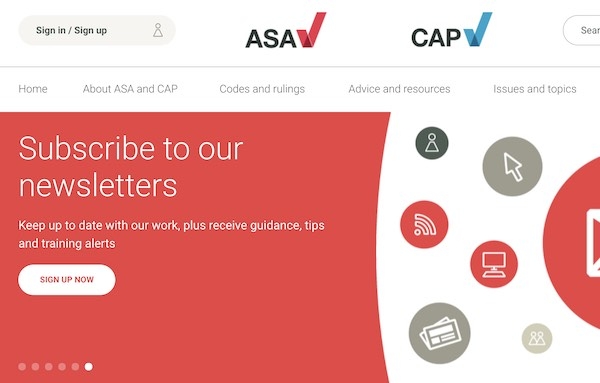The Advertising Standards Authority has censured equity release firm Key Retirment Solutions for a TV commercial which featured a cartoon sketch of a couple receiving financial advice.
The ASA has told Key not to show the "irresponsible and misleading" ad again in its original form after concerns about its content.
The TV ad for an equity release mortgage product was show in January.
It included a voiceover stating: “If you’re retired and your existing mortgage deal is coming to an end, you might find your current lender has some bad news regarding your new monthly repayments. So it’s good to know there’s another way. With an equity release plan from Key, you could clear your current mortgage and with the option to make reduced or no monthly repayments, you could have more money in your pocket.”
On-screen text stated, “Equity release will reduce your estate’s value & may affect your entitlement to means-tested benefits … Typically, the loan plus compound interest is repaid when the plan comes to an end following death or entry into long term care. Clearing existing mortgage with equity release may result in higher cost of borrowing. 55+ homeowners only. Our equity release advice relates to Key branded lifetime mortgages only – a loan secured against your home”.
The ASA challenged whether the ad “irresponsibly” used an appeal to fear about the potential of high mortgage rates to promote the product and “misleadingly” implied that the equity release plan was comparable to a normal mortgage.
Both challenges were upheld by the ASA.
Key said that the ad made viewers aware of a product that could solve pressing financial needs and might better serve customers’ needs than a standard mortgage. It offered a no negative equity guarantee, a fixed-for-life interest rate and the ability to start/stop making payments at any time.
Key said it believed it was clear that a lifetime mortgage was different to a standard mortgage and that this was reinforced by the statement.
The ad included details required by the Financial Conduct Authority (FCA) about the features and risks of a lifetime mortgage, Key said.
Key said that it was also necessary for consumers to obtain regulated advice in respect of equity release before proceeding with an application for an equity release product and direct applications from consumers were not accepted.
Clearcast, an ad checking agency, said that, based on the description of the product in the voice-over and the qualifying on-screen text, they considered the ad provided sufficient information about the product for the viewer to make an informed choice about whether it could be suitable for them. They did not believe the ad implied that Key’s product was similar to a traditional mortgage, but offered an alternative that viewers may wish to consider if their current mortgage was coming to an end.
There was one complaint about the ad to the ASA.
The ASA said that while it understood that a lifetime mortgage would be a suitable product for some consumers, it was also a complex financial product which carried different benefits and risks to a standard mortgage and would not be an appropriate alternative in all circumstances.
In its ruling the ASA said: “Given that the ad alluded to increased mortgage costs and the cost of living crisis and the financial concerns of a potentially vulnerable older audience, we considered viewers were likely to be left with an unbalanced picture about the benefits and risks of this complex financial product and its suitability for their particular circumstances.
“Because the ad played on the financial fears of viewers during a cost of living crisis, in particular an older audience who might be struggling financially, and did not make sufficiently clear the likely suitability of a complex financial product, we concluded the ad was irresponsible and misleading.”
The ASA ordered that the ad must not be broadcast again in the form complained of and it has informed Key Retirement Solutions Ltd not to exploit the financial fears of a vulnerable audience and to ensure they make sufficiently clear the risks and suitability of the advertised product.

